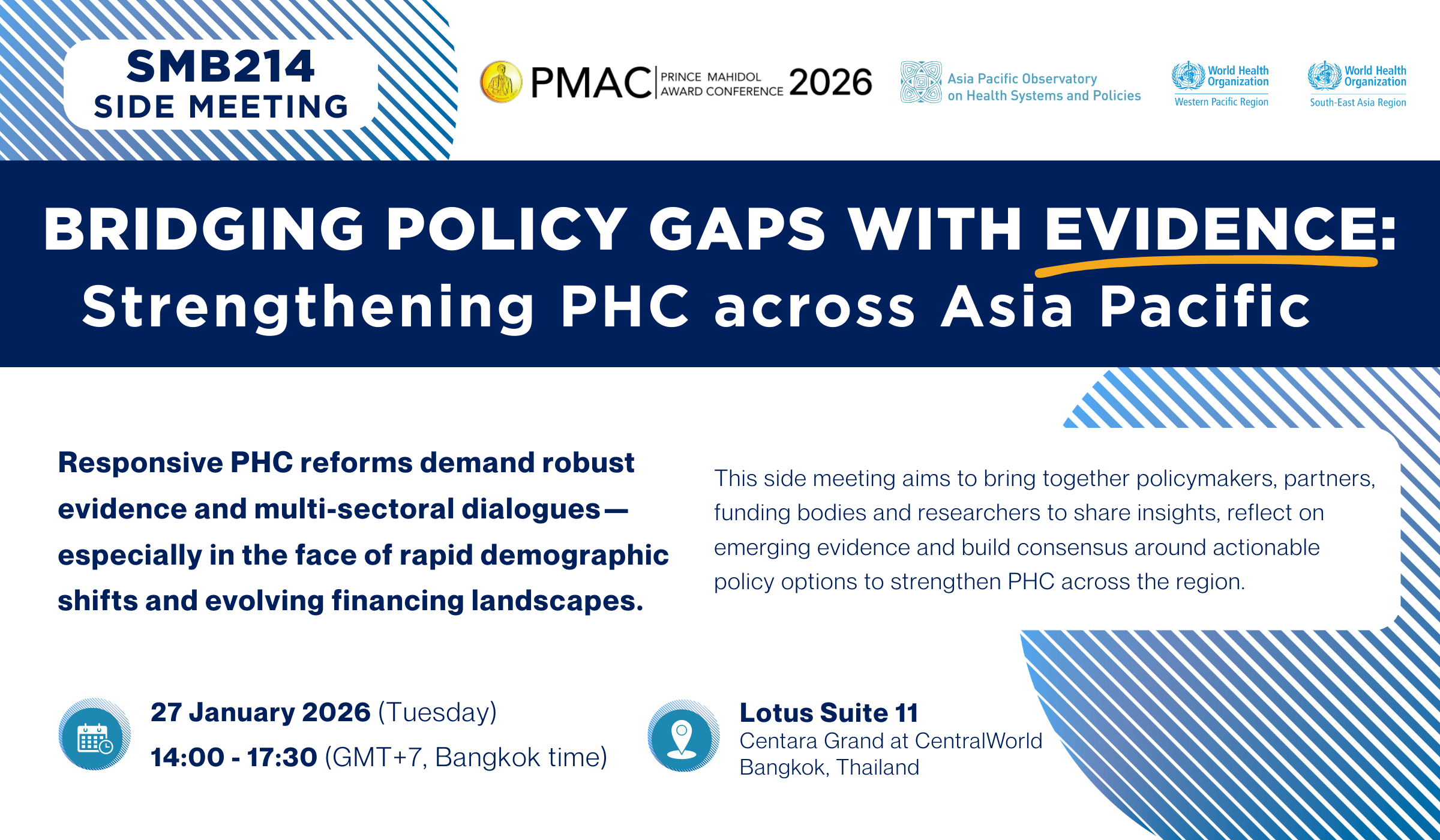Side Meetings
SMB214
Bridging policy gaps with evidence: strengthening PHC across Asia Pacific
27
Jan
- Asia Pacific Observatory on Health Systems and Policies (APO)
- WHO-WPRO
- WHO-SEARO

In translating the renewed PHC commitments during the Astana Declaration (2018) into policy actions, significant progress has been made, yet much remains to be done within and across countries. UN agencies and multilateral development banks have been key levers in supporting PHC strengthening in countries by providing technical assistance and financing as well as documenting PHC status through, regional and country reports. However, questions remain: What are the critical obstacles to building resilient, comprehensive and integrated PHC systems in the region? How can countries address persisting barriers in financing, human resources, quality care, political economy and public-private partnerships? And what are the emerging needs to address given the demographic shifts, and opportunities to capitalize in realizing a future-ready PHC?
This side event aims to bring together policy-makers, partners, funding bodies and researchers to share insights and build consensus to generate actionable policy options. It will be informed by research on PHC systems in region and discussions from diverse stakeholders.
Introduction
The World Bank East Asia Pacific, together with Asia Pacific Observatory on Health Systems and Policies (APO), conducted an expert and/or MOH survey in 25 countries in the region to stake stock on PHC systems and identify gaps and disruptive actions in PHC reforms. This includes governance, financing, human resources, health information systems, quality of care, integrated care, service delivery and patient empowerment.
The report is expected to be released as PHC flagship report for East Asia and Pacific in December 2025. Building on the rich evidence, APO is expanding the landscaping research to additional six South Asian countries using similar methods.
This will paint a more conclusive regional landscape for Asia Pacific and subregional levels at South East Asia and Western Pacific regions. Additionally, it will serve as robust resource (i) for governments, providing baseline data for monitoring and recalibrating PHC strategies, and (ii) for development partners and researchers, linking PHC status to pressing heath issues such as climate change adaptation capacity and donor financing transitions.
This session builds evidence on PHC systems capacity across Asia Pacific including WHO regions serving Western Pacific and Southeast Asia, and at the country level. It broadly aims to discuss and bring forth actionable policy options to harness research capacity and evidence in strengthening PHC amidst the fast-shifting demographics that intersect with equity.
Specifically, it aims to
1.examine and discuss the status of PHC systems, health outcomes and potential determinants at regional and bi-regional levels in Asia Pacific;
2. identify and align policy options with research findings to accelerate translating PHC evidence into actions, focusing on improving quality in:
a.digital infrastructure
b.human resources for health
c.governance and financing challenges; and
3. strengthen networks for engaging governments, experts and donors to mobilize cross-country PHC collaboration.

